Romania marriage poll: One man, one woman definition up for vote
- Published
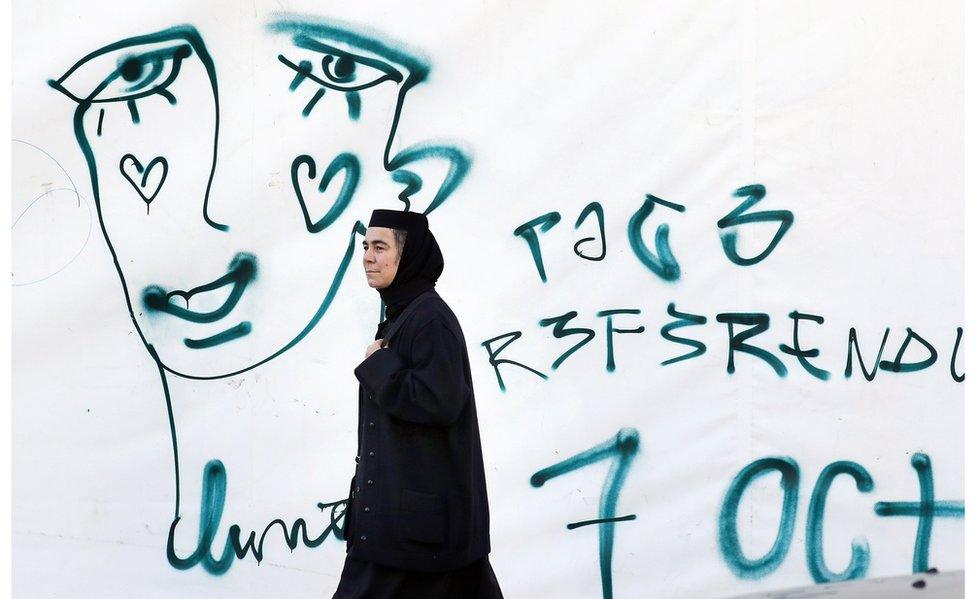
A change to the constitution is backed by the Romanian Orthodox Church but opponents fear many families will be affected
Romanians are deciding this weekend whether a family should revolve around a married man and woman.
The two-day vote on changing their constitution has been portrayed by supporters of the referendum as a way of protecting the status of the "traditional" family.
Opponents warn it will come at the expense of same-sex couples, single parents and children too.
And there are accusations that the whole exercise is a sideshow to distract from a corruption case involving the leader of the ruling party.
What would a Yes vote do?
Romania does not recognise gay marriage or civil unions, and the referendum does not change that. Instead, it is about clarifying the language in the constitution.
Article 48 says the family "is founded on the freely consented marriage of the spouses". A Yes vote would change that to "marriage between a man and a woman".
"We want to protect, at a constitutional level, the definition of marriage - between one woman and one man," says Mihai Gheorghiu, president of the pro-referendum Coalition for Family.
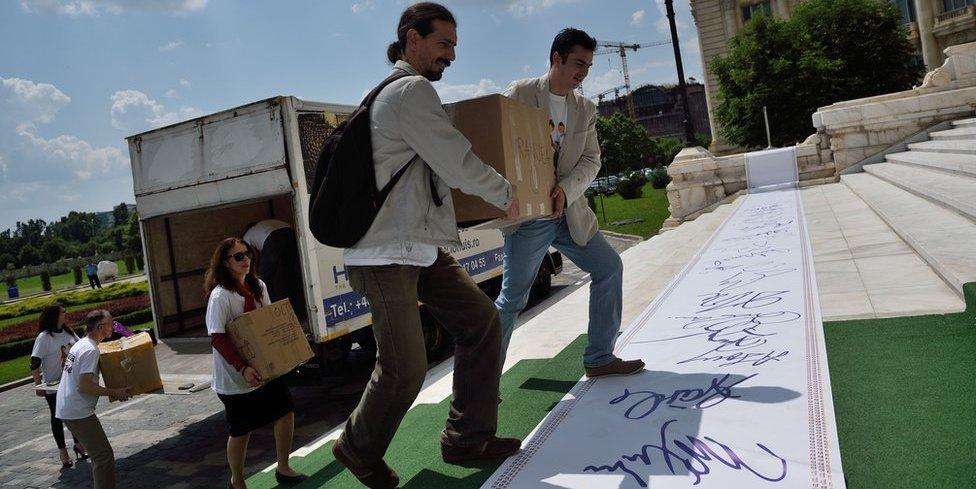
In 2016, the Coalition for Family delivered its millions-strong petition to the senate
That definition is already enshrined in the civil code, but his group wants "another level of protection" in the constitution.
Mr Gheorghiu - a former government minister - is adamant that same-sex couples would not lose out.
"In respect of LGBT rights and needs, there will be no change," he says. Homosexuality in Romania was decriminalised in 2001.
Will Romanians back change?
The proposal certainly has plenty of support.
Mr Gheorghiu's coalition collected three million signatures to start the process, in a population of under 19 million.
The Romanian Orthodox Church backs the campaign and as many as 85% of Romanians consider themselves Orthodox Christians.
But while Romanians are expected to vote yes, the No campaign's strategy is to boycott the vote and hope the turnout falls below the 30% needed to be valid.
Romania has seen referendums invalidated in the past because of a low turnout. The 2016 general election saw under 40% of the electorate cast a vote.
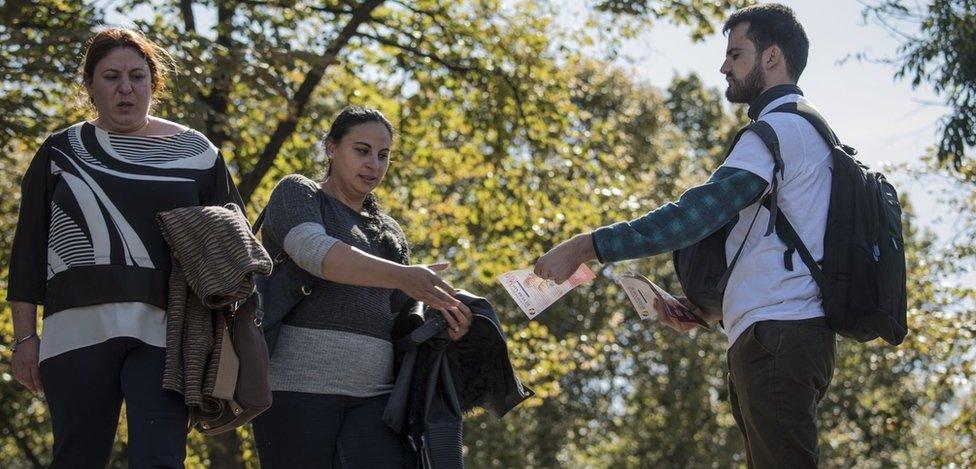
Campaigners for a yes vote have been out in force in Bucharest, the capital
The vote is a battle for hearts and minds, says Katrin Hugendubel of the International Lesbian, Gay, Bisexual, Trans and Intersex Association (ILGA).
She accuses the Yes campaign of framing the vote around gay marriage when "what it's actually trying to do is change the definition of family". "It's a broad attack on family rights."
Romania continues to have one of the lowest rates of acceptance towards LGBTI rights, she says, with no legal protection for same-sex couples, either in partnerships or marriage, and high rates of "homophobic and transphobic hate" - especially in rural areas.
Who will be affected by change?
Critics argue that defining family as based on a marriage between a man and a woman would mean that constitutional protection would no longer apply to single parents, partners with children or grandparents raising children.
Neither is uncommon in a country where working-age parents can earn more abroad and send money home to support their family.
The Coalition for Family argues that the rights of these groups are already protected elsewhere in Romanian law.
"Speaking from a legislation point of view and from a constitutional point of view, the situation is balanced," says Mihai Gheorghiu.
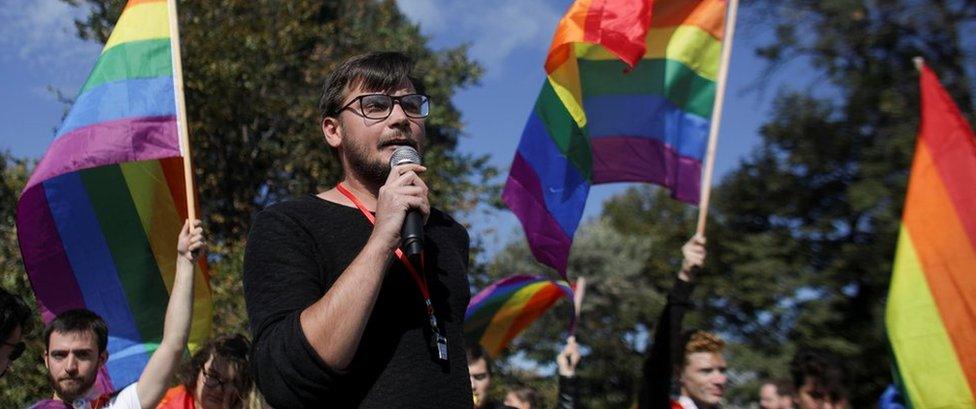
LGBT rights groups have demonstrated against the proposed changes warning that many families could be affected
A group of 47 MEPs wrote to Romania's prime minister, external ahead of the vote warning that redefining the family had the potential to harm children in all families.
Romania's current approach to "non-traditional" family relationships remains unclear.
At the end of September, the constitutional court ruled that gay couples should have the same rights as heterosexuals.
It followed a June 2018 ruling by the European Court of Justice in favour of a Romanian man, Adrian Coman, who had married his American partner in Belgium. His partner had been denied a spousal visa when the pair had tried to move to Romania.
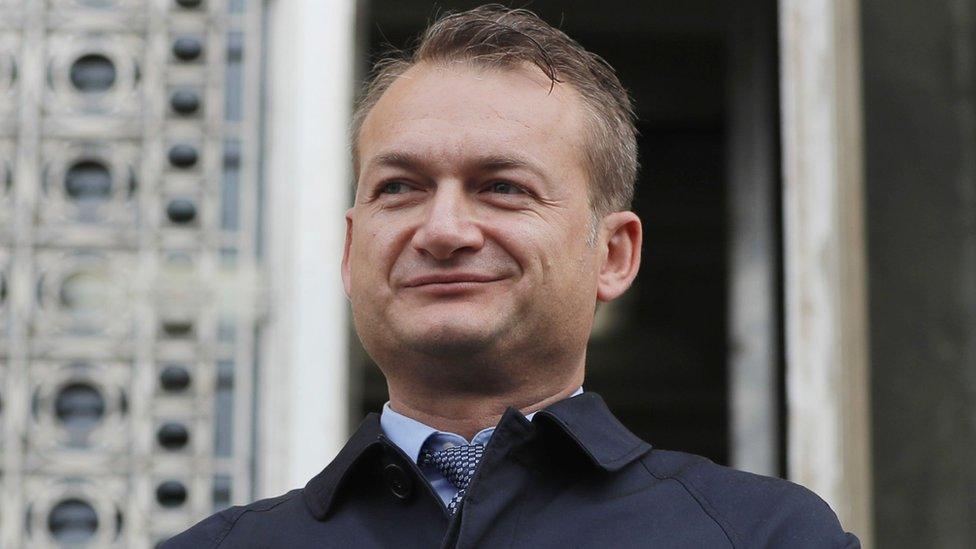
Mr Coman won his case at the European Court of Justice after a long legal battle
Why have a vote now?
Many believe the referendum has been designed to divert attention from corruption scandals, according to Prof Dennis Deletant of Georgetown University, the author of several books on Romania.
"Most of Romania's political elite doesn't seem to be able to respect the principles of democracy," he says, adding that the ruling Social Democrats (PSD) are the butt of most criticism.
Thousands of Romanians have taken to the streets to protest at recent political moves seen as weakening anti-corruption powers.
And on Monday PSD leader Liviu Dragnea will appeal against a three-and-a-half year jail sentence in a fake jobs for party workers case. Critics see the court appearance a day after the vote as no coincidence.
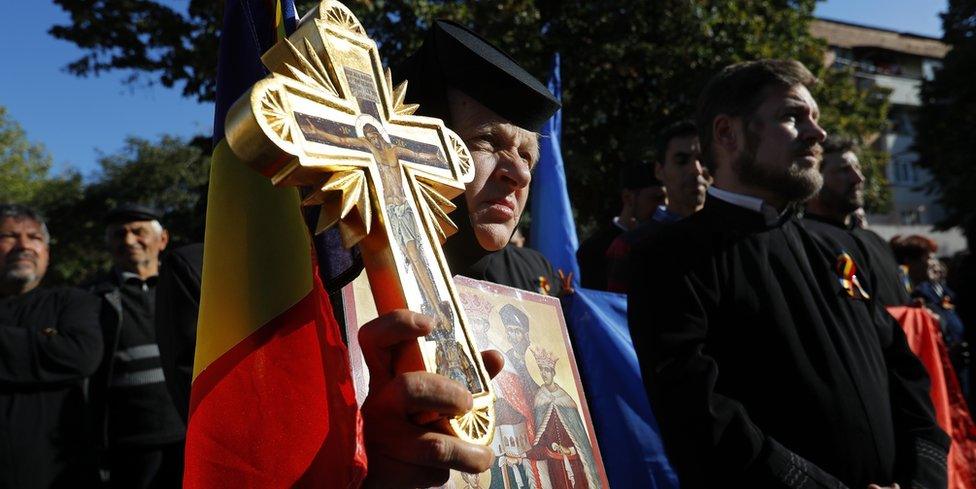
The Orthodox Church has campaigned for a yes vote - seen here on 4 October
Prof Deletant believes a surge of post-church voters could not only sway the vote but help push turnout over the required 30%.
"The urban voter realises this is a ploy on the part of the PSD to maximise the turnout," he says, but beyond the big cities Romanians are less concerned.
For Mr Gheorghiu and his coalition, all this is a distraction as almost every party voted for the referendum in parliament.
"I don't think the boycott will be massive," he says.
Polls close at 21:00 on Sunday (18:00 GMT) - with preliminary results later in the evening.
- Published18 December 2024
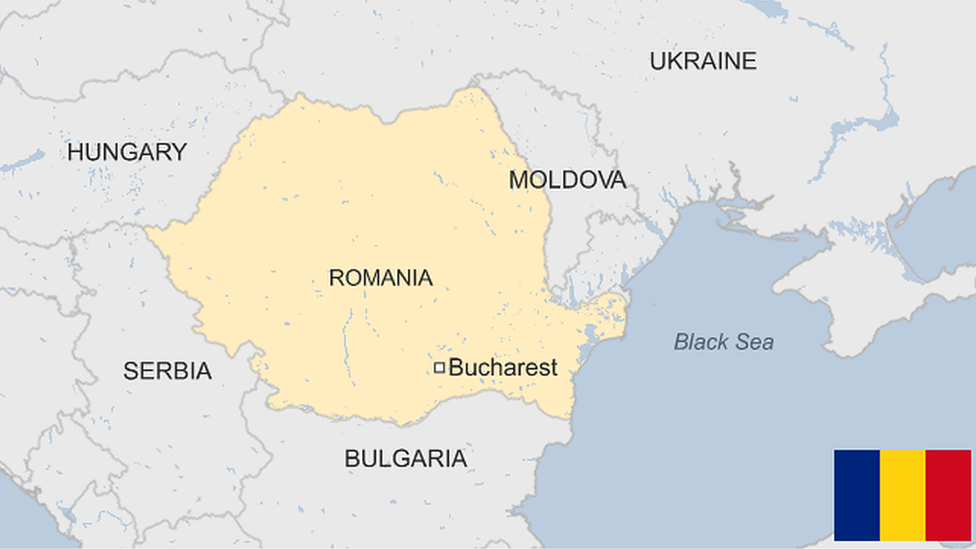
- Published2 February 2017
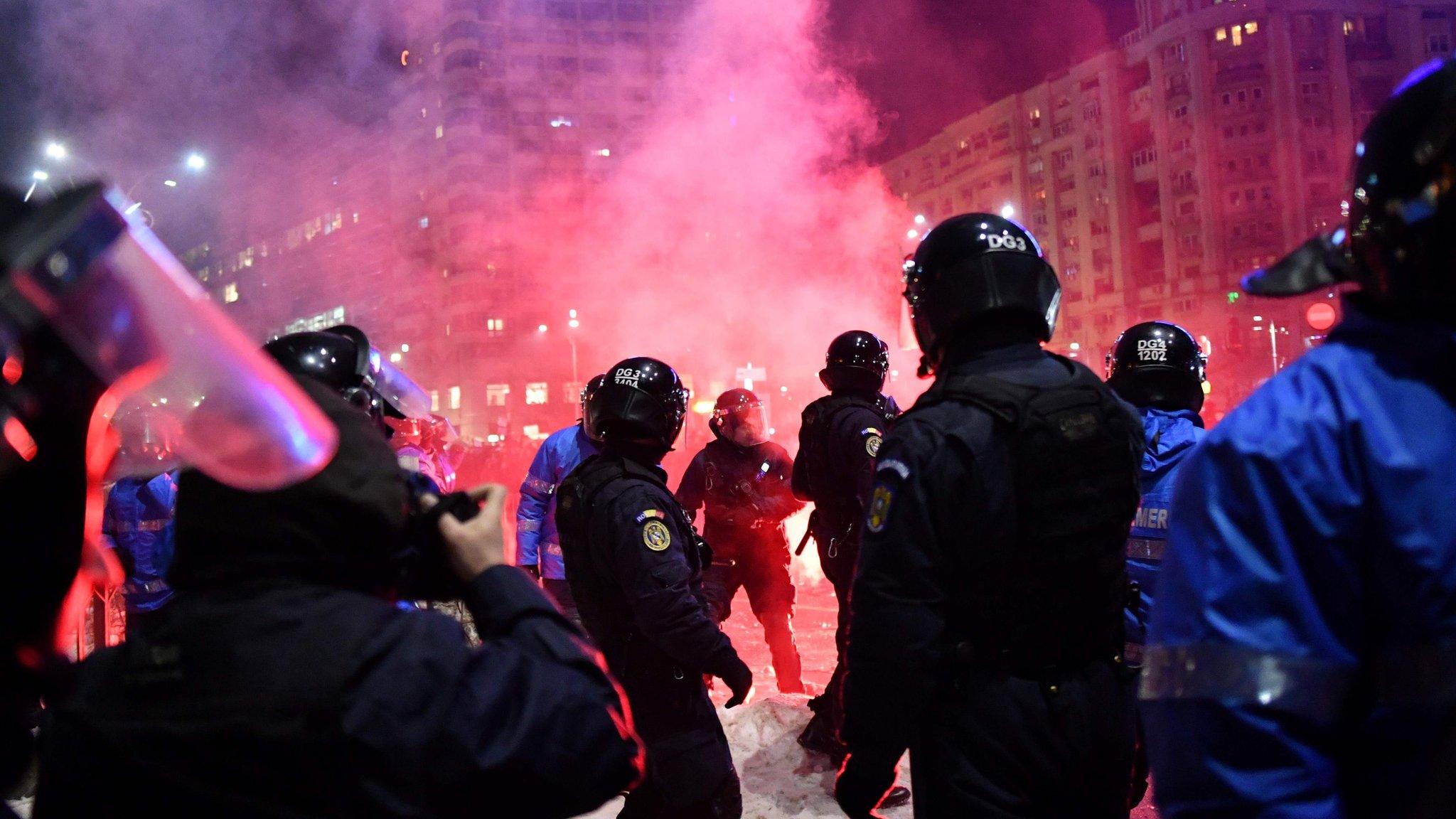
- Published5 June 2018
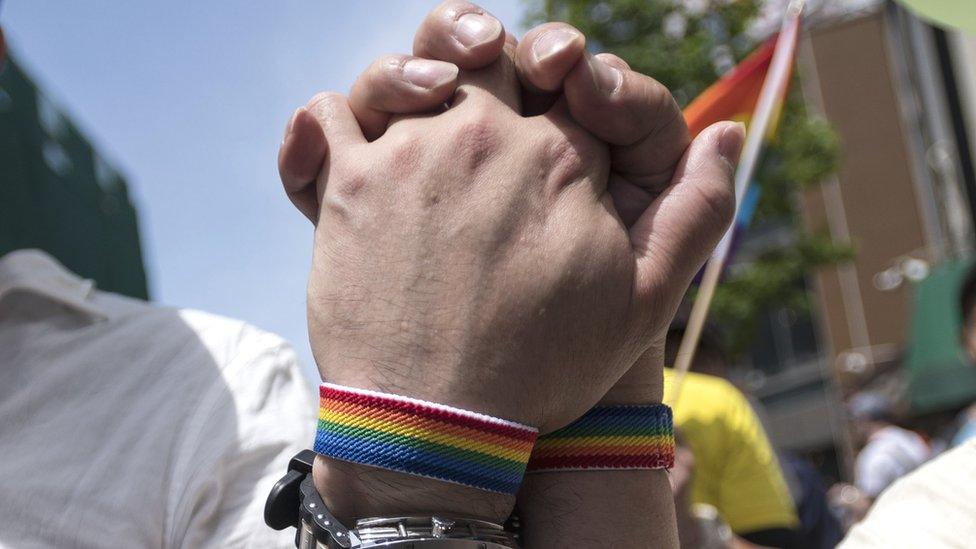
- Published5 February 2017
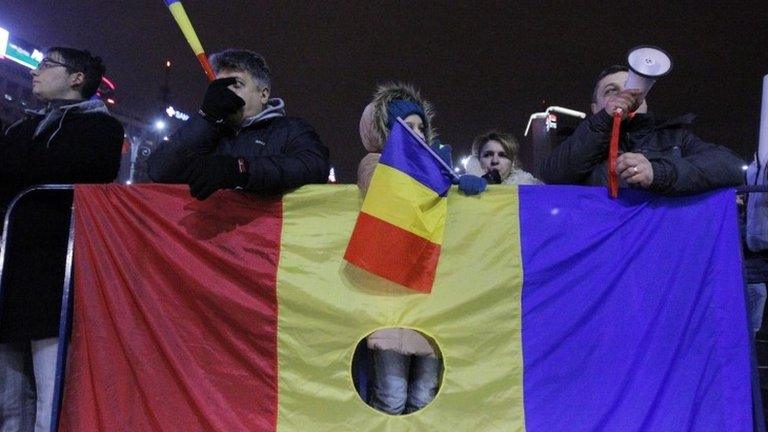
- Published11 August 2018
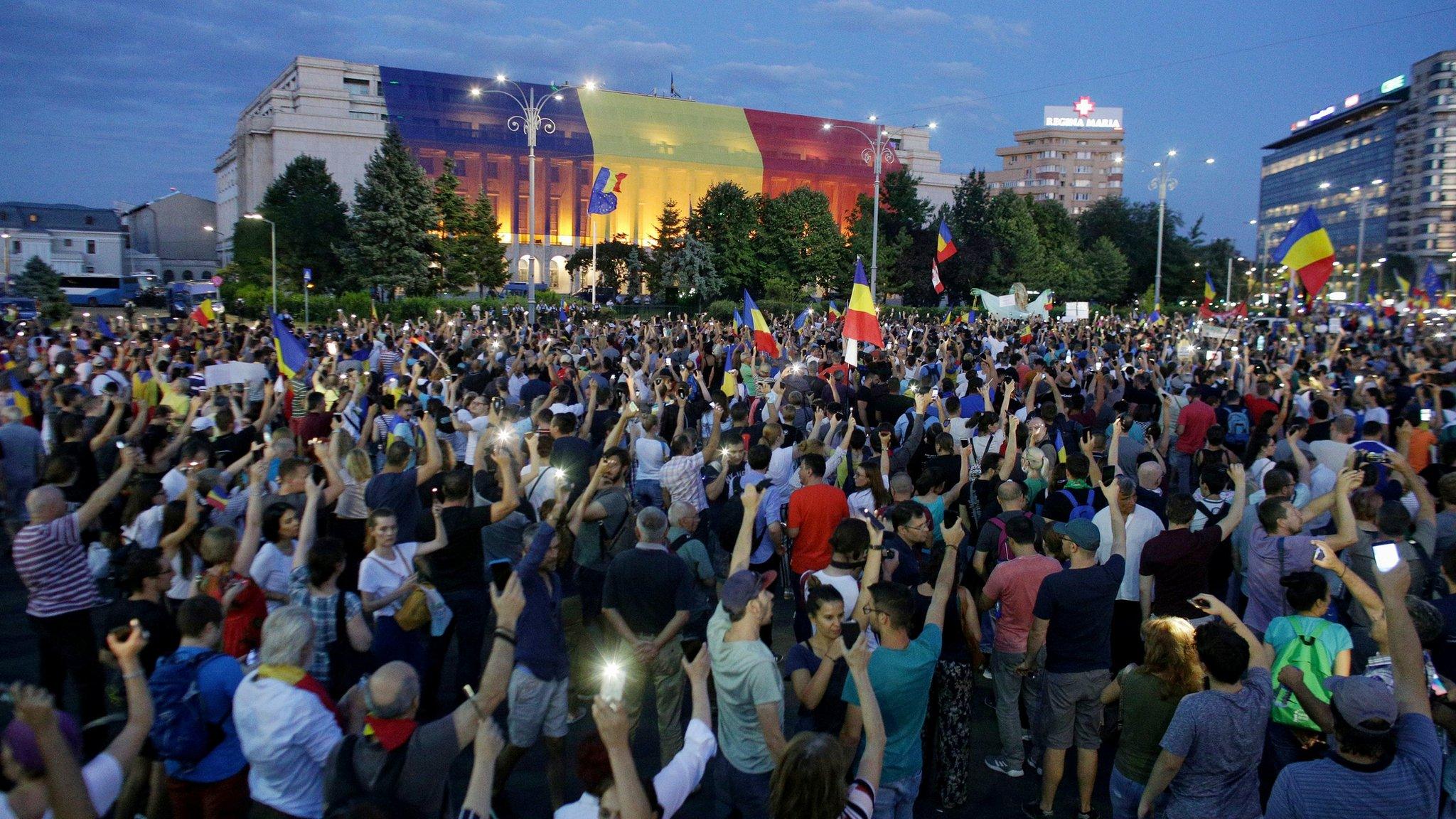
- Published10 August 2018
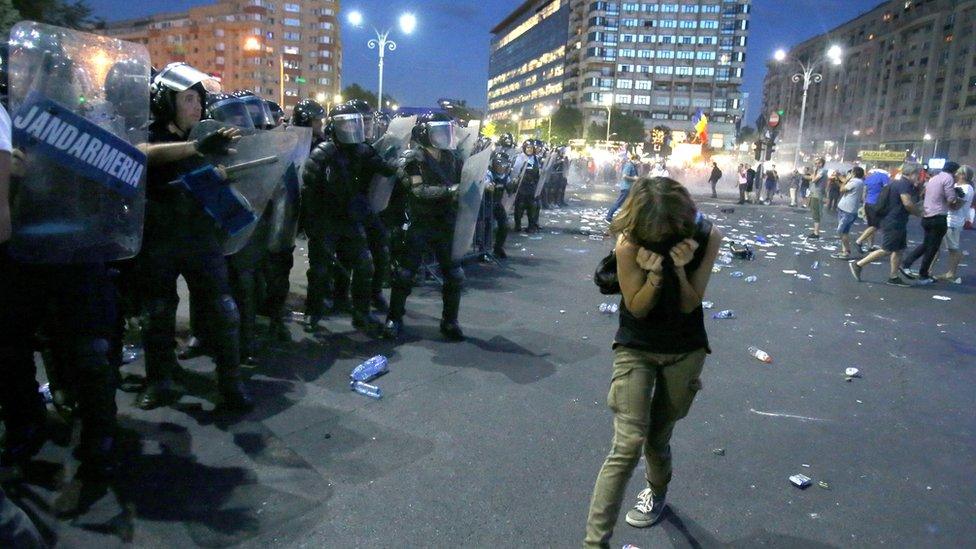
- Published17 January 2018

- Published15 January 2018
